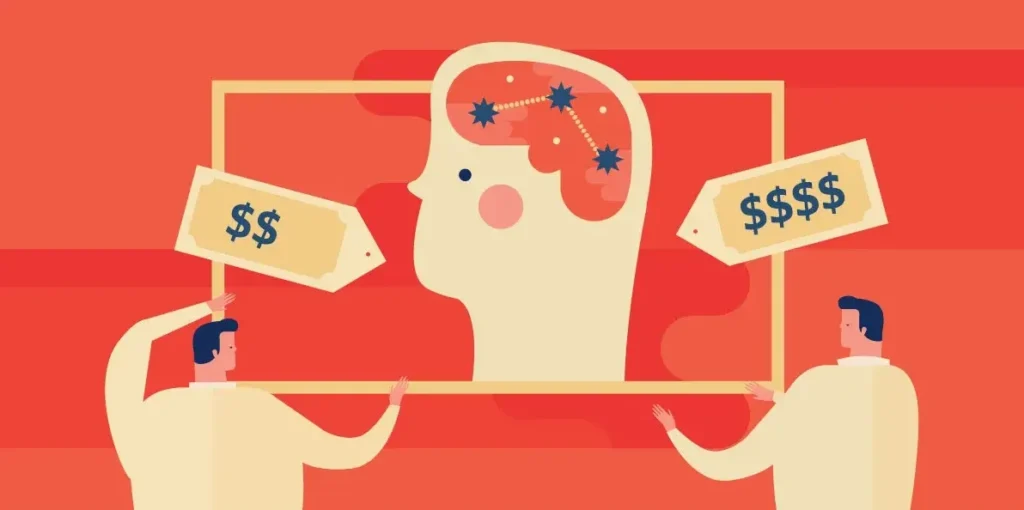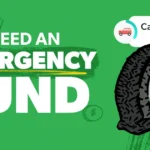Have you ever asked yourself, “Where did all my money go?” You earn, you spend, and somehow the balance seems to vanish. This isn’t just about poor math—it’s about human psychology.
Spending is not always rational. Our brains, emotions, and environments influence financial behavior more than we realize. That’s why even financially educated people overspend.
In this article, we’ll explore the psychology behind overspending—why we do it, how marketing tricks us, and most importantly, how to stop.
1. The Emotional Side of Money
Money is not only a tool—it’s emotional. People often spend to:
- Relieve stress (“retail therapy”).
- Celebrate achievements (“I deserve this”).
- Impress others (status spending).
- Feel comfort or escape boredom.
These emotional triggers create short-term happiness but long-term regret. Understanding your emotional money patterns is the first step to change.
2. Why Overspending Happens
a) Instant Gratification
Humans prefer immediate rewards over future benefits. Buying now feels good, saving feels boring. This is known as the present bias.
b) Lifestyle Inflation
When income rises, spending often rises too. Instead of building wealth, we upgrade cars, gadgets, or vacations.
c) Social Pressure
Friends, family, and social media encourage comparison. “Keeping up with the Joneses” leads to unnecessary purchases.
d) Clever Marketing Tricks
From “limited-time offers” to buy-one-get-one deals, marketers know how to push emotional buttons.
e) Lack of Awareness
Most people don’t track spending. Small daily purchases (coffee, snacks, subscriptions) add up silently.
3. The Role of the Brain in Spending
Our brains are wired in ways that encourage overspending:
- Dopamine reward system: Buying triggers pleasure chemicals, creating addictive cycles.
- Decision fatigue: After making many choices in a day, willpower weakens—leading to impulse buys.
- Anchoring effect: We judge prices based on the first number we see (a $1,200 phone feels “reasonable” compared to a $1,500 one).
4. Signs You Might Be Overspending
- You often wonder where your paycheck went.
- Credit card balances keep increasing.
- You shop online out of boredom.
- You avoid checking your bank account.
- You justify every purchase with “I need it.”
If these sound familiar, it’s time to change habits.
5. How to Stop Overspending
a) Track Every Dollar
Awareness kills overspending. Use budgeting apps or a simple notebook to record expenses.
b) Set Spending Triggers
Notice what causes overspending—stress, social media, discounts—and create counter-strategies.
Example: If late-night scrolling leads to shopping, remove saved credit cards from shopping apps.
c) Delay Gratification
Follow the 24-hour rule: Wait one day before buying non-essentials. Most impulses fade.
d) Use Cash for Discretionary Spending
Swiping cards feels painless. Using cash creates a tangible sense of loss, reducing overspending.
e) Create Spending Limits
Set budgets for fun categories like dining, shopping, or entertainment. When the limit is reached, stop.
f) Avoid Temptation Environments
Unsubscribe from marketing emails, mute shopping ads, and avoid browsing online stores “just for fun.”
g) Reward Yourself Wisely
Instead of splurging, reward yourself with experiences or savings milestones. For example, celebrate paying off debt with a day trip, not another purchase.
6. Building Healthy Spending Habits
- Set financial goals (emergency fund, debt freedom, retirement). Goals make it easier to say no.
- Practice mindful spending: Ask yourself before buying—“Do I need this? Will it matter in a month?”
- Automate savings: Pay yourself first so money isn’t available for impulse buys.
- Surround yourself with supportive people: Friends who value financial health will encourage better habits.
7. Case Study: The Hidden Cost of Small Purchases
Imagine you spend $5 daily on coffee. That’s $150 per month or $1,800 per year.
If invested at 7% annual growth, that same $150/month would grow to $37,000 in 15 years.
Overspending on “small” things silently robs your future wealth.
8. The Connection Between Spending and Mental Health
Overspending often creates guilt, stress, and anxiety. That, in turn, leads to more emotional spending—a vicious cycle.
Breaking it requires addressing both money and mental health. Meditation, therapy, and healthier stress outlets (exercise, hobbies) can reduce the urge to overspend.
9. Long-Term Benefits of Controlled Spending
By mastering spending psychology, you gain:
- Less financial stress.
- More savings and investments.
- Freedom to choose opportunities.
- Confidence and peace of mind.
Financial strength isn’t about earning more—it’s about keeping more.
FAQs About Overspending
1. Why do I spend money when I’m stressed?
It triggers dopamine, giving temporary relief. But it’s not a lasting solution.
2. Is overspending a sign of addiction?
For some, yes. Compulsive shopping is a recognized behavioral issue.
3. How can I control overspending without feeling deprived?
Budget “fun money.” Spending in moderation prevents guilt.
4. What’s the best way to stop impulse buying online?
Delete stored payment info and uninstall shopping apps.
5. Can therapy help with overspending?
Yes. Financial therapy or cognitive-behavioral therapy (CBT) can address emotional triggers.
Conclusion
Overspending is not just a money problem—it’s a psychology problem. Emotions, habits, and external pressures all influence how we use money.
The solution is awareness and discipline. By tracking expenses, delaying gratification, avoiding triggers, and building mindful habits, anyone can take control of their spending.
Remember: Every dollar you don’t overspend is a dollar you can invest in your future.


